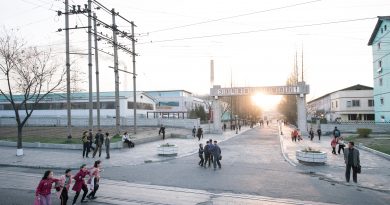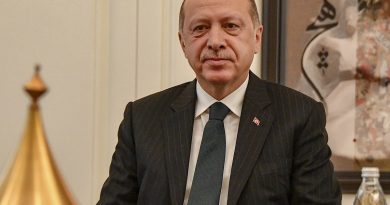FOCUS on the Laws of War: The ICC and ICJ
Jarrett Dang
Editor-in-Chief
The Ukraine war has renewed conversations about justice and accountability over crimes that violate international law. The alleged massacre in the Kyiv suburb of Bucha and claims that Russian forces are targeting civilians have mobilized figures in Western nations, including U.S. President Joe Biden, to call for prosecutions of war criminals, reports Business Insider.
While war crimes trials have precedent and are being used today, the international legal system is complex and fraught with challenges, meaning any international effort to try cases from Ukraine would be difficult. In the current system, there are three main avenues to settle disputes between states that could be used in Ukraine, each with separate jurisdictions and rules: The International Criminal Court (ICC), the International Court of Justice (ICJ), and criminal tribunals like those seen in the former Yugoslavia and Rwanda.
The ICC serves as the primary body that handles criminal trials of individuals under international law. The Court, which sits in the Hague in the Netherlands, was founded in 2002 by the Rome Statute and has undertaken several high-profile prosecutions of suspected war criminals and human rights violators, according to the Council on Foreign Relations. Among the crimes tried at the ICC are genocide, war crimes, crimes against humanity, and crimes of aggression that violate the UN Charter.
The court, in theory, has the wide legal authority to compel parties to submit to international justice—even current and former government officials. Such is the case against Omar al-Bashir, the former strongman leader of Sudan, who is accused of crimes against humanity in the country’s Darfur region and is awaiting extradition to the Hague. However, one major problem the court faces is in terms of the suspects it can reasonably try—membership in the court is voluntary, meaning that states that do not want to abide by the Rome Statute are not required to do so. There are notable absences among the ICC’s 123 full member countries including Russia, China, India, and the United States.
In terms of the Ukraine conflict, it would be very difficult for the ICC to try Russian leaders for war crimes, says The New York Times. While Ukraine is also not an ICC member, it has extended the court’s jurisdiction to probe war crimes in Ukraine ranging back to 2013. The ICC’s limited means of enforcement beyond member states’ borders also means that even if it issues arrest warrants for Russian leaders like Putin, they will likely remain ineffective unless Russia or another state extradited them to The Hague. There is precedent for attempting to try heads of state—including Libyan dictator Muammar al-Qaddafi who was killed before the court could act—but the prospect of trying Russian leaders remains very slim.
The ICJ is another international body relevant to the war in Ukraine. Unlike the ICC, the ICJ deals with issues between states instead of individuals and is one of the principal organs of the United Nations, meaning that member states are party to the court by default and are legally obligated to follow its decisions. The Guardian reports that the court has ordered Russia to stop its military invasion shortly after the start of the conflict, meaning that Russia is breaking international law in Ukraine. While the court has little means of enforcing its order to “immediately suspend” the conflict, it does mean that Russia’s international legal rationale used to justify the invasion has evaporated.
A third legal option against Russia could be found in a country-specific war crimes tribunal. These types of trials, which are created by the United Nations to try criminal cases from a specific event or country, have been used to identify and prosecute war criminals in the aftermath of the Rwandan Genocide and the Yugoslav Wars. Indeed, Ukrainian President Volodymyr Zelenskyy has approved of a “special mechanism” to prosecute war crimes in Ukraine, and some have called for the formation of an international tribunal to pursue Russian leaders, according to The Conversation.
Despite previous successes, all the options for prosecuting war crimes committed by Russia in Ukraine remain remote possibilities at this point in the conflict. The speed of international justice is also an issue, with each trial being expensive, lengthy, and politically fraught. For now, as the conflict continues, calls for war crimes trials will likely continue as leaders try to figure out the best way to deliver justice in the current system.



